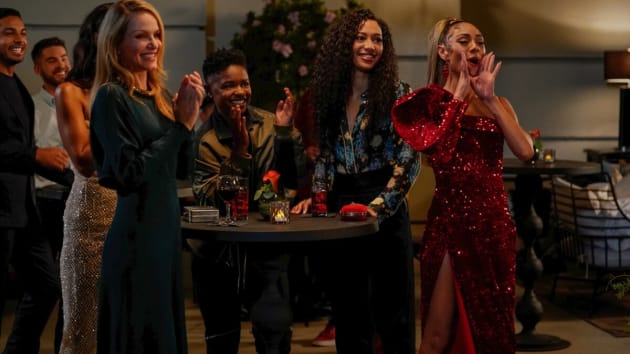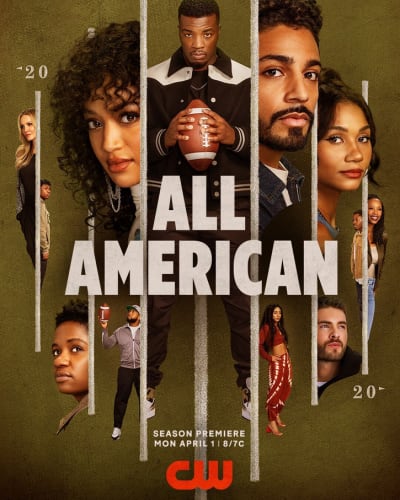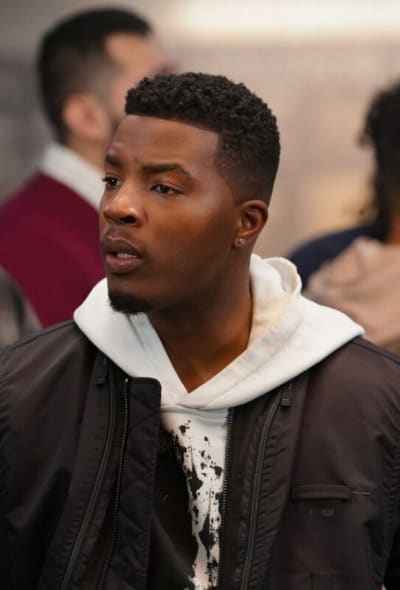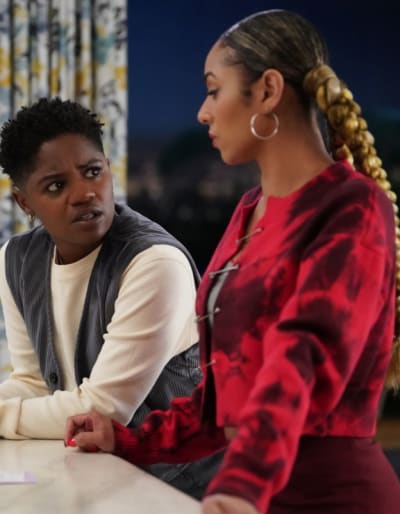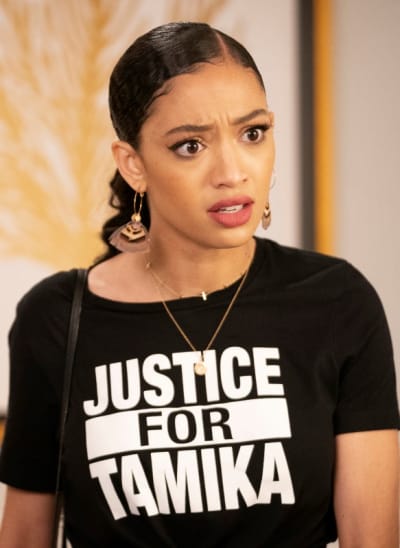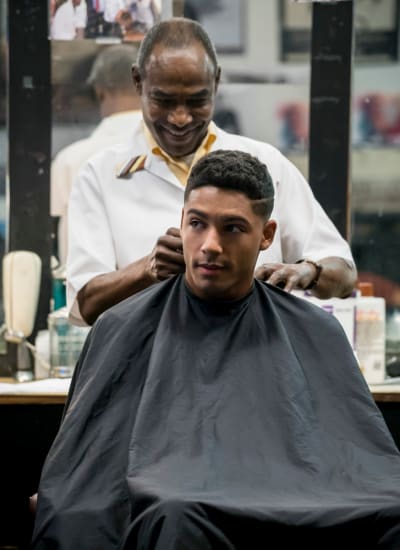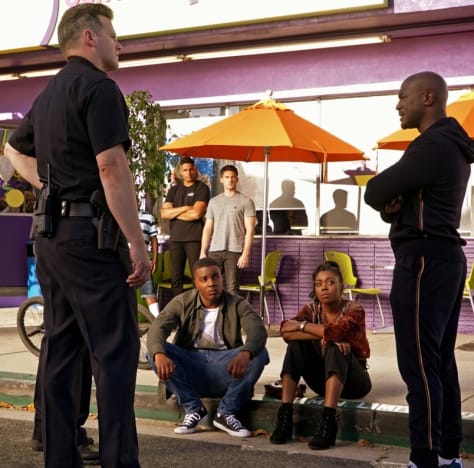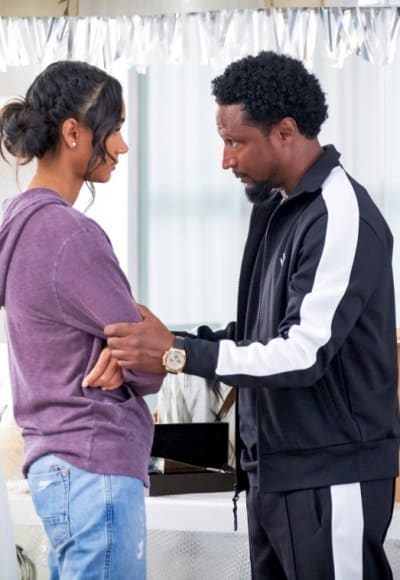It’s almost hard to believe that Friday Night Lights premiered in 2006. Its “clear eyes, full hearts, can’t lose” attitude will forever be a staple.
That said, there is no denying that All American has a way of doing things better than its predecessor.
All American is based on the real-life experiences of football player Spencer Paysinger, focusing on two different schools, South Crenshaw and Beverly High School, their students, families, and communities.
We tend to think that money brings happiness. The kids at Beverly High are privileged with lovely things and hefty allowances, but the more meaningful things in life, like family, solidarity, and character, shine at South Crenshaw.
After first watching All American, it’s hard not to draw a comparison from it being a mix of Friday Night Lights and whatever teen drama show first comes to mind, whether it’s 90210, The OC, or Riverdale, but a deeper look reveals there’s much more to the show.
From shining a light on critical social issues to more dramatic storylines, we are here to share the key differences that All American does better.
Socioeconomic Issues, Racism, And Violence
On the show, we see topics like gun violence, racial profiling, gang violence, racism, and socioeconomic issues prevalently featured. Yes, we see some of those briefly shown on FNL, but nothing like we do on All American.
The CW series tells a story that is bigger than just football. While we see how the world can be unfortunately divided, at a deeper review, it also points out how we are all human and have shared stories.
When Spencer first transfers to Beverly High, his first year is brought with racism and stereotyping by fellow students. We even see Asher ask him if he is a crip or blood in All American Season 1 Episode 1.
However, it doesn’t end there. Spencer also experiences resentment and stereotyping from his former teammates for leaving them and joining the world of the affluent.
Regardless of how anyone sees him, Spencer is a humble character with undying hometown pride who will do everything for his friends and community, including preserving it from gentrification, an all too real-world problem.
His dedication to his friends is highly evident in his friendship with Coop. She ends up in a gang, and her character, among others, depicts how not having many options in life can lead her down a violent path.
Spencer does not want that to happen to anyone, especially Coop and his younger brother. Along with opening up a conversation, we also see action taken and positive outcomes. This educational angle gives All American, no matter the topic, a step above.
Before FNL saw the split of East Dillon and West Dillon, inequality, racism, and gang violence was scarce. The exception, of course, is Coach Mac McGill’s racist comments and Smash’s protest of how it was handled.
While FNL covers class differences, it is not near the economic gap seen in All American and the problems that arise from it.
Gun violence is front and center when Spencer is shot while protecting Liv from a drive-by shooting and circles characters like Coop, Preach, and Tyrone. FNL’s best depiction of the issue is Vince giving Coach Taylor his gun.
Sexuality
In Friday Night Lights, the queer characters are minor, at best. The most we see is on Friday Night Lights Season 4 Episode 4 when Julie and Devin Boland go to a gay bar and see assistant coach Stan Traub.
However, in All American, Coop is abandoned by her family for being a lesbian. Patience, her girlfriend at the time, is there for her by providing her with a place to stay and someone to help her work through her sexuality and accept herself.
Their relationship is by far one of the best on the show, and there is no lack of content depicting their loyalty and love for one another.
While the LGBTQ+ community has been more prevalent in TV series nowadays, it is not where it should be, and often, the depictions fall flat. Still, this natural, beautiful relationship is inspirational.
Police Brutality
During All American Season 3, Olivia is enraged by the shooting of Tamika, a young Black woman who is killed by police while asleep in her car. Olivia can’t help but think back to how she drove intoxicated with Spencer and got in a fender bender.
Olivia and Spencer were offered a ride home because her white mother is the District Attorney, but she can’t get over the fact that things could have ended much differently.
That is not the only time we see this in the show. On All American Season 1 Episode 3, Spencer and Jordan were pulled over by the cops while driving Jordan’s convertible. Spencer immediately raises his hands and acts calm, while Jordan is confused and questions the cop.
In the end, the two end up face down on the pavement and handcuffed. When they get home, Spencer scolds Coach Baker for not educating Jordan on what to do when such situations arise.
When recalling FNL, no big moments of education come to mind.
Racial Profiling
In All American, there is no lack of racial profiling depicted. A great example is when Spencer, Olivia, Jordan, Dillon, Asher, and Kia get frozen yogurt.
When Dillon and Spencer start arguing, the owner doesn’t just kick them out; she calls the cops on the group for “loitering and disorderly conduct.” To top it off, the cops ask them if they are part of a gang.
This scene is incredibly infuriating, given that this shop results from gentrification in Crenshaw.
Maybe more of an example of just pure racism, but when the police pull over Dillon’s bus to talk to Smash, claiming he was the one to throw the first punch in the brawl seen in Friday Night Lights Season 1 Episode 6, we see racial profile.
Smash was walking away, and Tim Riggins was the starter of the altercation. However, the true instigators were the opposing team and refs.
Mental Health
In All American, Layla struggled with depression. Her absent father, her mother’s death, and overall pressures from life become too much, and she attempts to take her own life and ends up in a mental health facility.
This significant moment creates a conversation surrounding mental health and how even the people who seem to have it all together can be hiding what’s going on inside.
This is not to say that FNL didn’t cover issues surrounding mental health.
We see Jason Street struggle after becoming paralyzed, Waverly Grady has bipolar disorder, and Tyra Collette clearly has PTSD. Still, it lacks the education and conversation around these issues that All American drives home.
Substance Abuse
From the start of All American Season 1, Olivia’s addiction issues are front and center. Her sobriety is something she has fought for every day since going to rehab. We even see she has a sponsor.
Unfortunately, she does end up relapsing. However, addiction cannot be cured; there is no medication for it, and it’s important for viewers to understand this and to break the stigma.
Tim Riggins struggles with alcoholism in FNL, and he definitely lacks the parental support Olivia has.
Also, no one tries to stop him like they do other underage characters, and it is barely talked about as a legitimate problem, so there’s no surprise his attempts to stop never work.
The list could go on. All American is way more than just your average teen drama. Pregnancy, betrayal, first loves, heartbreak, injuries, steroids, the toxic culture that football can have, death, lies in families, plus many more topics all have a home in the series.
Hopefully, the show will continue for a while and can continue to educate its fans on the severe issues many TV shows won’t touch on because they are too controversial.
Eve Pierpont is a staff writer for TV Fanatic. You can follow her on X.
